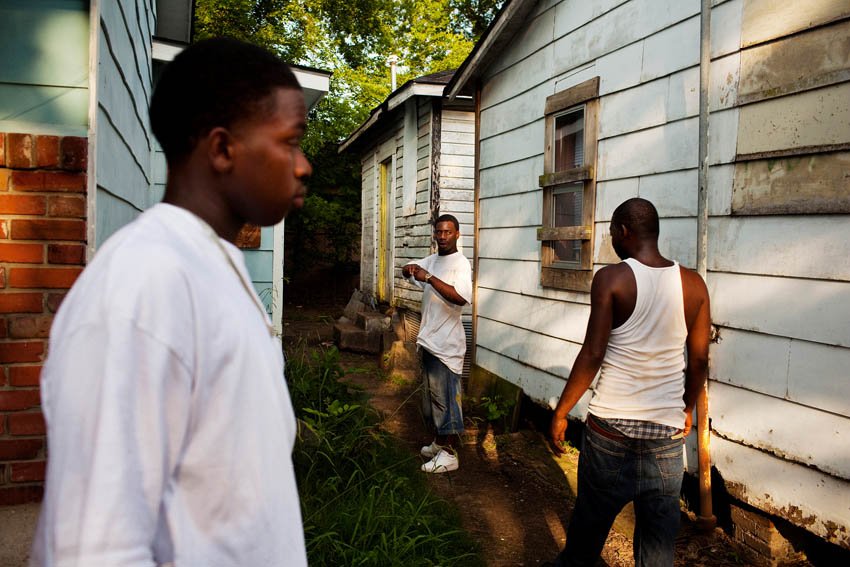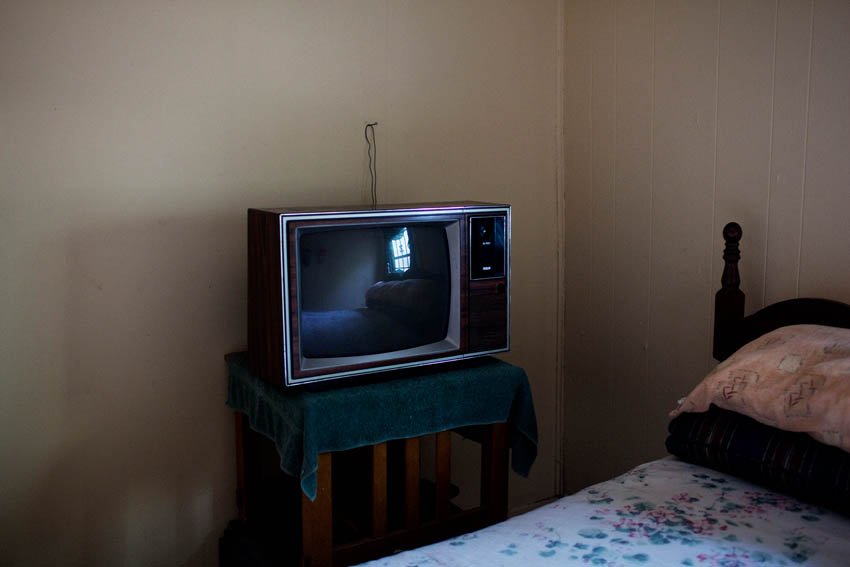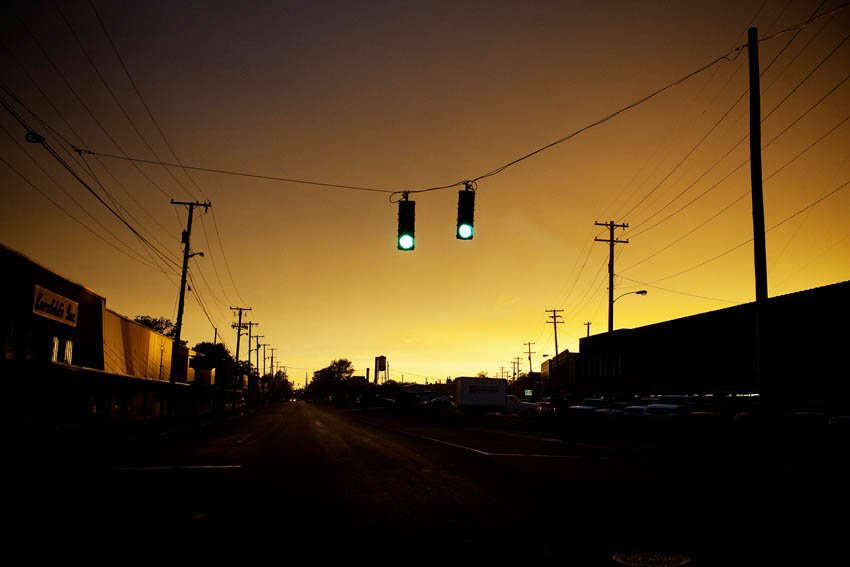Matt Eich 2010 Commended
Sin and Salvation in the Mississippi Delta
In an overgrown alley of a forgotten town in rural Mississippi, I sit on the floor of a concrete porch of a house that should have been condemned decades before. Willie “Bob” Jones, 46, in the chair in front of me, drunker than hell at 2 in the afternoon lets tears roll down his cheeks as he says, “My father is 80 years old and lives in this trashcan. You have the audacity to come here and take our pictures and y’all ain’t done shit.”
And he’s right – I haven’t. In the six short days I’ve been able to spend in Baptist Town, Mississippi while on an assignment about rural healthcare for the AARP Bulletin I have started establishing connections that will allow me to achieve the intimacy necessary to make images that go beyond what you see on the surface: an impoverished African American neighborhood in the rural South. But I’ve yet to accomplish anything that will make an impact on the lives of those I have been fortunate enough to meet.
While many of us would like to believe that we live in a post-racial society it is hard to imagine a place like Baptist Town existing without the South’s troubled history of racism and segregation.
My goal with this project is to remind people that while we may live in a time where civil rights is taught in history classes around the country, the real legacies of racism in the south continue to impact people economically and culturally, in persistent and often pernicious ways. I want to directly focus our collective attention on this complicated inheritance, focusing on the Mississippi Delta and Baptist Town in particular by bringing an exhibition of the work created to both its residents and the more affluent white communities around Baptist Town. I do not want this to be a passive example of putting images in front of an audience and allowing them to draw their own conclusions. I want to actively engage them in improving the lives of their neighbors who have been disempowered for generations. I want to accost them with what they choose to ignore.
In an alleyway only a few blocks from where Bob sits drinking with his brothers, Winky takes the 40 and checks to see if there’s one in the chamber, stepping behind the abandoned building where the young folks all hang out. POP! POP! POP! He shoots into the air. The woman raking her yard with a child 100 feet away doesn’t pay him any mind. The other kids are startled and Brandon jumps up and hurries away saying, “Damn Winky, that was some dumb shit.” They stash the gun under the abandoned building and continue rolling blunts, waiting for the cops to show but knowing that they won’t. Winky tells the other kids they’ve “gotta be hard”, and as the oldest of the group at 27, they believe him. Winky was sent to prison when he was 14 for seven and a half years, allegedly for armed robbery. How can anyone expect a young man to reintegrate into society as a productive citizen after that? For the kids who want more from their life than collecting a check each month, dealing drugs, toting guns and “being hard” are the only examples modeled for them. It is no wonder the high school graduation rate is so abysmal.
I want to show what is right and wrong with Baptist Town. I want to document the people here with respect and empathy and to present the case that environment and upbringing have an enormous impact on the lives of the next generation that is growing into this cycle of poverty, crime and violence. Crime and violence are more likely to occur in an environment that shows a lack of order, and residents have expressed a desire to see the abandoned buildings they live alongside torn down. When a local business studied the town for “revitalization” the community turned out en masse in support of the changes, only to be abandoned when the organization turned its sights on another, more affluent part of town.
Trust is a commodity in short supply in Baptist Town and I have earned it by building relationships with everyone from the drug dealers to the church regulars to the convenience store owner. They accept me and know that I am there to show people outside the borders of their community how they live. I am tired of making images that will simply be published and forgotten, never to make an impact in the lives of those pictured. I left Baptist Town angry and afraid for the futures of the young men and women I had interacted with. The support of the Ian Parry Scholarship is the only way I can continue returning to the Mississippi Delta and documenting this forgotten community. After I have gathered enough images I hope to partner with an organization such as OSI’s Documentary Photography Audience Engagement Grant to help distribute this work in a compelling way that will involve the residents in their own narrative and force the wealthy white residents of the South to take notice and to pay attention to their less fortunate neighbors, just on the other side of the tracks.
People in Baptist Town are hungry for education, healthcare and job opportunities, all of which seem largely out of reach from their position of entrenched poverty. When opportunity is denied to an entire group of people, it is an issue of human rights and social justice. Just how much longer will we choose to ignore them?
About the Photographer
Matt Eich is a photographic essayist working on long-form projects related to memory, family, community, and the American condition. He is the author of four monographs of photography and his work is widely exhibited and held in public collections including the Chrysler Museum of Art, Cleveland Museum of Art, Do Good Fund, Museum of Fine Arts Houston, and others. Matt’s projects have received support from an Aaron Siskind Fellowship, two Getty Images Grants, a VMFA Professional Fellowship and an Aperture/Google Creators Lab Photo Fund Grant. He was an artist in residence at Light Work in 2013 and at a Robert Rauschenberg Residency in 2019. Eich teaches at Corcoran School of the Arts & Design at the George Washington University. He makes books under the imprint Little Oak.PRESS and lives in Virginia.












